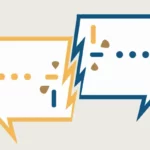
Education is a serious matter, or at least, that is what we think. Therefore, in most of the schools children should stay politely seated, serious and attentive to the lesson that’s taught. However, maybe we’re wrong, or we’re not doing everything in the most effective way. Maybe learning should be fun, perhaps between a work of mathematics and a history lesson it would fit a smile.
Laughter is a serious matter, especially for small children
Recently a French team of psychologists from the University of Paris Ouest Nanterre La Defense found that humor, in addition to being an excellent medicine for the soul and the body, also helps children in learning.
These psychologists have developed a very simple experiment to see whether the humor could benefit the children’s learning capacity. They worked with 18 months old children. First, these children were watching an adult trying to grab a toy out of reach by using a tool.
In a group, the adult simply played with the toy once he got it, but in another group the adult has thrown down the toy to the floor making funny faces, causing half the children were laughing. Later children had to grab the toy themselves.
So it was found that 93.7% of children who had laughed at the antics of the adults were able to repeat the action themselves, using the appropriate tool to reach the toy. However, only 25% of children who did not laugh or were part of the control group in which there was no hilarious situation, were able to grab the toy, which shows that very few learned to use the appropriate tool.
Why laughing stimulates the learning?
Perhaps the explanation lies in the brain. In fact, positive emotions, such as laugh, increase the levels of dopamine in the brain, activating the reward system. This means that laughter helps us to motivate us, which has a positive effect on learning.
In fact, it was also found that laughter increases the memory by facilitating the integration of new information as it makes them easier to remember. We adults tend to better remember the details of news presented in a hilarious way, compared to the same presented on conventional newspapers.
It was demonstrated by an experiment conducted at the Sam Houston State University with undergraduate students. The young students could remember better statistical data and study material in a conference when the professor had a good sense of humor.
However, beyond the effect on the brain, sense of humor is also helpful in learning as it helps to create a more relaxed atmosphere, eliminating stress and anxiety at the time of the lesson. In addition, there are few things more effective than humor to capture the attention.
Children get their sense of humor from their parents
Teaching while having fun is not just a teacher’s task, parents also have their share of responsibility. It is demonstrated by a study conducted at the University of New Hampshire, which discovered that children between six months and a year old learn to distinguish what is funny and what’s not by observing the reaction of their parents.
In practice, from 6 months on, babies begin to look at their parents for clues on how to react to different situations, to see if it is a threat or not.
Since then parents become a source of emotional information for their children, a kind of sense of humor consultants, and then, after a year, if parents laugh frequently and always face mishaps with a smile on their lips, it is likely that children will have already learned to react the same way.
Everything in moderation
Of course, this doesn’t mean we have to turn schools into “universities of comedy”. In fact, the excess of humor can interfere with learning becoming an unnecessary distraction causing that children lose the thread of the content and are not able to separate the essential from what is irrelevant.
But when the sense of humor is used in the right measure is a good tool to make learning a truly enjoyable experience.
Sources:
Esseily, R. et. Al. (2015) Humour production may enhance observational learning of a new tool-use action in 18-month-old infants. Cognition and Emotion; 30(40): 817-825.
Mireault, G. et. Al. (2012) Infant Humor Perception from 3- to 6-months and Attachment at One Year. Infant Behav Dev; 35(4): 797–802.
Garner, R. L. (2006) Humor in Pedagogy: How Ha-Ha can Lead to Aha! College Teaching; 54(1): 177-180.



